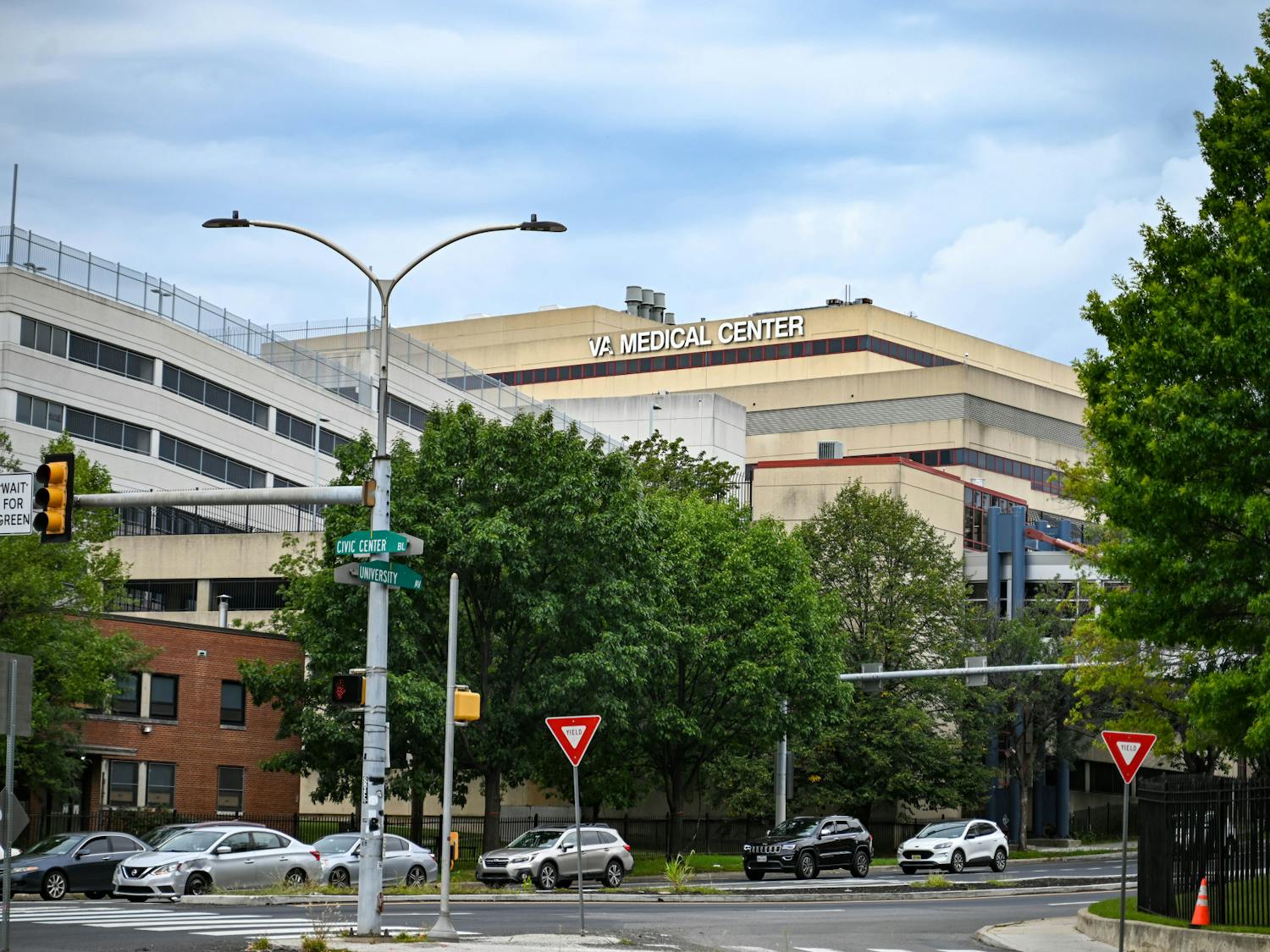The College Green rally was intended to draw students' attention to the problem. and Meghan Butler As part of a city-wide effort to rid Philadelphia of domestic violence, the University's Division of Public Safety organized a rally yesterday, hoping to increase student and staff awareness of the issue. Nine speakers headlined the rally, which officially began Domestic Violence Prevention Month. The event featured information tables and The Clothesline Project, a decorated T-shirt display made by, or in memory of, victims of domestic violence. "It was sad but also uplifting because a lot of them had overcome, through their own means, the situation," said College junior Beatrice Jauregui, who said she was moved by the display. University Director of Police Operations Maureen Rush discussed the role of Penn Police in discovering how "domestic violence carries over into workplace violence." As far as students are concerned, Rush reminded them that "the best response, the only response to help the individual is to be non-judgmental." Later, Betsy Datner, a doctor in the Hospital of the University of Pennsylvania emergency room, described the cyclical pattern of domestic violence. At HUP, she said, 24 percent of all women treated in the ER have been victims of domestic violence. Datner said health care professionals must be able to recognize signs of abuse. Social Work Professor Richard Gelles spoke about male behavior patterns surrounding the issue. He also explained the importance of "social control" to break the pattern of violence and said that tougher penalties are necessary to stop domestic violence. According to Gelles, "We don't use prison appropriately for the crime." College junior Hema Sarangapani, responding to Gelles' speech, resisted the idea of time in jail as a "band-aid solution." "His solution seems to be to throw the man in jail," she said. "It's a solution, but it doesn't address social change." Natalie Denney, a College senior and member of the group Students Together Against Acquaintance Rape, described the role students can play in prevention, which she considers "not only possible but necessary." STAAR's goal, she said, is not "to make this a man versus woman issue." Instead, she wants to "open the lines of communication" between men and women and encouraged men to get involved in STAAR. And while the event did not draw crowds of students, Public Safety Director of Special Services and event organizer Susan Hawkins said the rally format -- which Denney said would reach more people than an indoor event would -- was intended to make passersby "stop and listen for a few minutes." If the event was organized more formally, she added, people might "feel they are identifying [with domestic violence]." On the other side of campus, in HUP's Maloney Building, Student Health Services held a workshop on how to respond to domestic violence victims. Janice Asher, director of women's health at Student Health, gave a presentation to more than 50 health care providers on the importance of treating domestic violence as a health care issue. Paul Bukovec, director of the Mount Airy-based Menergy -- which offers a 33-week treatment program for abusive men -- assured the audience that the difference between abusive men and non-abusive men is small. "We learn to be abusive at home," he said, adding that his own father had abused his family. While the "vast majority" of abusive men are resistant to change, Bukovec said that two years after completing Menergy's program, 69 percent drastically reduce their abusive behavior. "This was inspiring, that professors are dealing with it and think it's important," said Nursing junior Yvonne Kingon of the workshop. "Talking to people about domestic violence is difficult. [Health care professionals] take it on as a responsibility."
The Daily Pennsylvanian is an independent, student-run newspaper. Please consider making a donation to support the coverage that shapes the University. Your generosity ensures a future of strong journalism at Penn.
Donate







